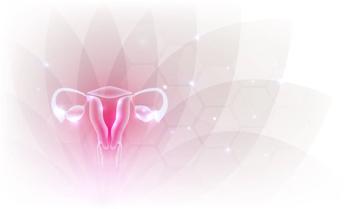
Diet impacts menstrual cramps
In a poster presentation at the North American Menopause Society Annual Meeting, researchers found that diets high in oil, meat, salt, sugar, and coffee contributed to menstrual cramps.
Dysmenorrhea, or menstrual pain, is the most common cause of school absences in adolescent girls, with few seeking treatment, according to a poster presented at the North American Menopause Society (NAMS) held in Atlanta, Georgia, from October 12-15, 2022.
With over 90% of adolescent girls experiencing menstrual pain, most use over-the-counter medication as treatment for these cramps, but this method has limited positive results. Additionally, previous studies have highlighted diets low in processed foods, oil, and sugar and high in omega-3 fatty acids reduced inflammation, which is a key contributor to dysmenorrhea.
"Since menstrual pain is a leading cause of school absenteeism for adolescent girls, it's important to explore options that can minimize the pain. Something like diet modification could be a relatively simple solution that could provide substantial relief for them," said Stephanie Faubion, MD, MBA, NAMS medical director.
In the poster presented at NAMS, researchers from Rutgers University sought to discover the effect diet has on menstrual pain and identify which foods reduce and contribute to this pain.
Researchers conducted a literature review and identified multiple studies that investigated dietary patterns that resulted in menstrual pain. The review found that diets high in omega-6 fatty acids stimulate inflammation, while foods high in omega-3 fatty acids reduce pain.
The muscles located in the uterus contract because of prostaglandins, which contribute to the inflammatory process. When measuring the Dietary Inflammatory Index, researchers found individuals on a vegan diet had the lowest rates of inflammation.
"Researching the effects of diet on menstrual pain started as a search to remedy the pain I personally experienced; I wanted to understand the science behind the association,” said Serah Sannoh, lead author of the poster presentation from Rutgers University.
She concluded, “Learning about different foods that increase and decrease inflammation, which subsequently increase or reduce menstrual pain, revealed that diet is one of the many contributors to health outcomes that is often overlooked. I am hopeful that this research can help those who menstruate reduce the pain they experience and shed light on the importance of holistic treatment options.”
Reference:
Sannoh S. What You Eat Could Contribute to Your Menstrual Cramps. Presented at: North American Menopause Society Annual Meeting. October 12-15, Atlanta, Georgia.
Newsletter
Get the latest clinical updates, case studies, and expert commentary in obstetric and gynecologic care. Sign up now to stay informed.








